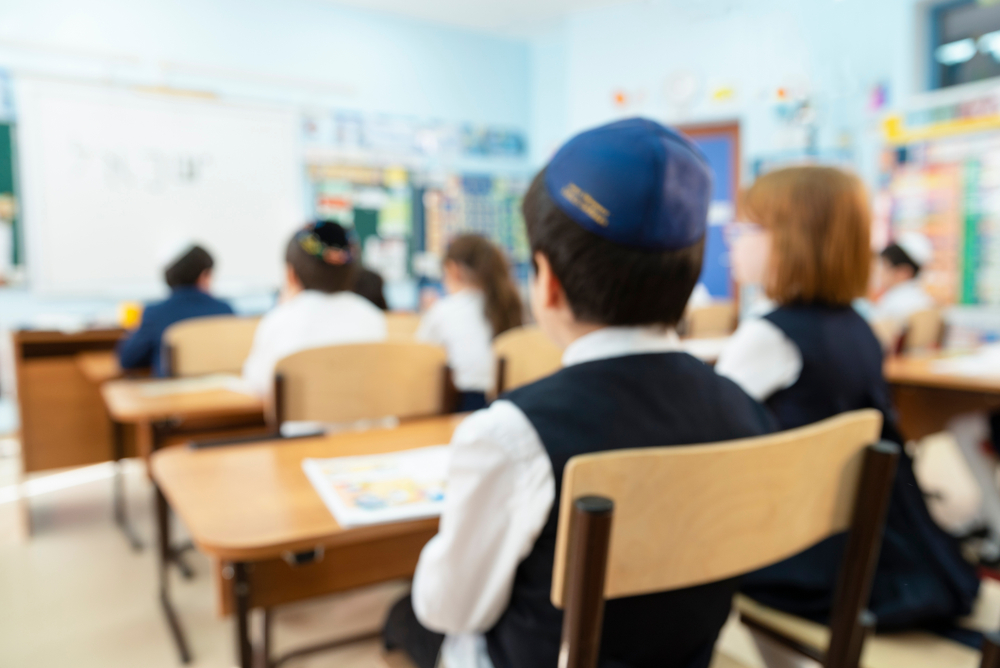
How to Choose a Jewish Day School
Written by Talia Avrahami
It is the beginning of the Gregorian calendar new year and that means it is time for Jewish parents with babies and toddlers to begin thinking about preschools for the upcoming school year. Yes, you read that correctly — touring, applying, and choosing a Jewish preschool typically happens at least six months before the school year starts. The process of choosing a school sometimes starts even earlier for those with children entering elementary school or teenagers entering high school. Regardless of whether you have a fourteen month old or a fourteen year old, the criteria to consider in choosing a school remain similar.
Hashkafa
Hashkafa (philosophical outlook) is arguably the most important component of choosing a Jewish day school. What is the school’s outlook on the world? Is it a Torah u’Madda Modern Orthodox school that believes integrating modernity and science into Judaism is spiritually rewarding? Is it a Yeshivish school that believes integrating into the modern world will lead to the demise of Torah knowledge? The school’s hashkafa is what will affect how your child ultimately sees the world, so picking a school that at least roughly aligns with your hashkafa is essential.
Gender
Another crucial component of choosing a school is whether it is a single-sex school or a co-ed school. Typically, schools with more right-wing hashkafot are single-sex and schools with more modern hashkafot are co-ed, but that is not always the case. In New York and New Jersey, single-sex Modern Orthodox schools like Ma’yanot Yeshiva High School for Girls and Shulamith School for Girls are commonplace. In out-of-town communities — largely due to not having enough students — co-ed Charedi (Ultra Orthodox) schools are commonplace. There are also educational benefits to single-sex schooling that have nothing to do with hashkafa, according to research. In general, girls who graduate from girls’ schools are stronger in tzniut (modesty), but lack the social skills in communicating with the opposite sex that co-ed graduates have. There are also schools that have both boys and girls but separate classes by sex, like Manhattan Day School and Yeshiva of Rabbi Samson Raphael Hirsch. Only you can decide what is of the highest priority to you.
Ethnicity
Many parents do not mind the ethnic composition of the school to which they send their children. Others are insistent on sending to either an Ashkenazi or Sephardi school because they want their children to have a specific accent or learn a specific nusach (prayer style). Many Ashkenazi parents prefer that their children grow up saying Shabbos and tznius, whereas many Sephardi and more modern parents want their children to grow up saying Shabbat and tzniut. While other parents simply do not care about whether the school is Ashkenazi or Sephardi.
Affiliation
Is the school affiliated with a particular synagogue or community? In New York and New Jersey, most Jewish day schools are not associated with a particular synagogue, but schools are typically associated with a particular geographic community. Sometimes, parents consider sending their children to schools that are further away. However, that may make it harder for your children to socialise outside of school, since their friends would not be living in the same community.
Tuition
One of the biggest burdens facing Orthodox Jewish parents is the cost of day school tuition. Tuition costs can vary widely. A Bais Rochel (Satmar girls’ school) may only cost $7000 per year, whereas a Modern Orthodox school can exceed $20,000 per year.
Financial aid and payment plans are available at almost every school, but paying tuition can still be arduous for many families. Sometimes sending your child to a different school can save money, but that school may not have as many resources.
Education
A school may be the perfect hashkafic fit and be somewhat affordable, but is its educational standards up to par with your expectations? Ask where the students go after they graduate. Do students take JSATs to measure their Judaic Studies skills? Are General Studies valued as much as Judaic Studies? What subjects do students have in their schedules? Do their teachers have training in pedagogy? While hashkafa and tuition may be the biggest concerns for most Orthodox Jewish parents, we must not forget the importance of a school’s educational standards in all subjects. Choosing a school should be done with a well-rounded mind that considers all of these components.
When thinking about where to send our children, it’s important to not only keep all of these issues in mind, but also to sit down with your spouse (and child) and decide together what are the most important topics and where you are comfortable compromising. Going into the process prepared will not only make it less stressful, but can prevent a disaster that will need dealing with in the future.

Regardless of whether you have a fourteen month old or a fourteen year old, the criteria to consider in choosing a school remain similar.
Related Articles
Related
Kids & Technology
The scene is familiar. You try speaking to your kid and hear a grunt in response, you turn around and you see that they are totally engrossed in their device. You call them again, again you hear a grunt. Finally you get super close to them and say, “It’s time to...
Evaluating Single-Sex and Co-Ed Schools
Winter is ending and spring is beginning; the time for choosing a Jewish day school is near and one of the biggest questions that parents and students face is whether to enroll in a single-sex or a co-ed school. Boys’ schools, girls’ schools, and co-ed schools have...
8 Keys to Healthy Communication with Your Kids
Ruti's Remedies Dear Ruti, I hear parents (especially young parents) say all the time “I want to have the kind of relationship with my kid that they will tell me if they did something wrong.” I think this is true of all parents (including myself). My question is: Is...
